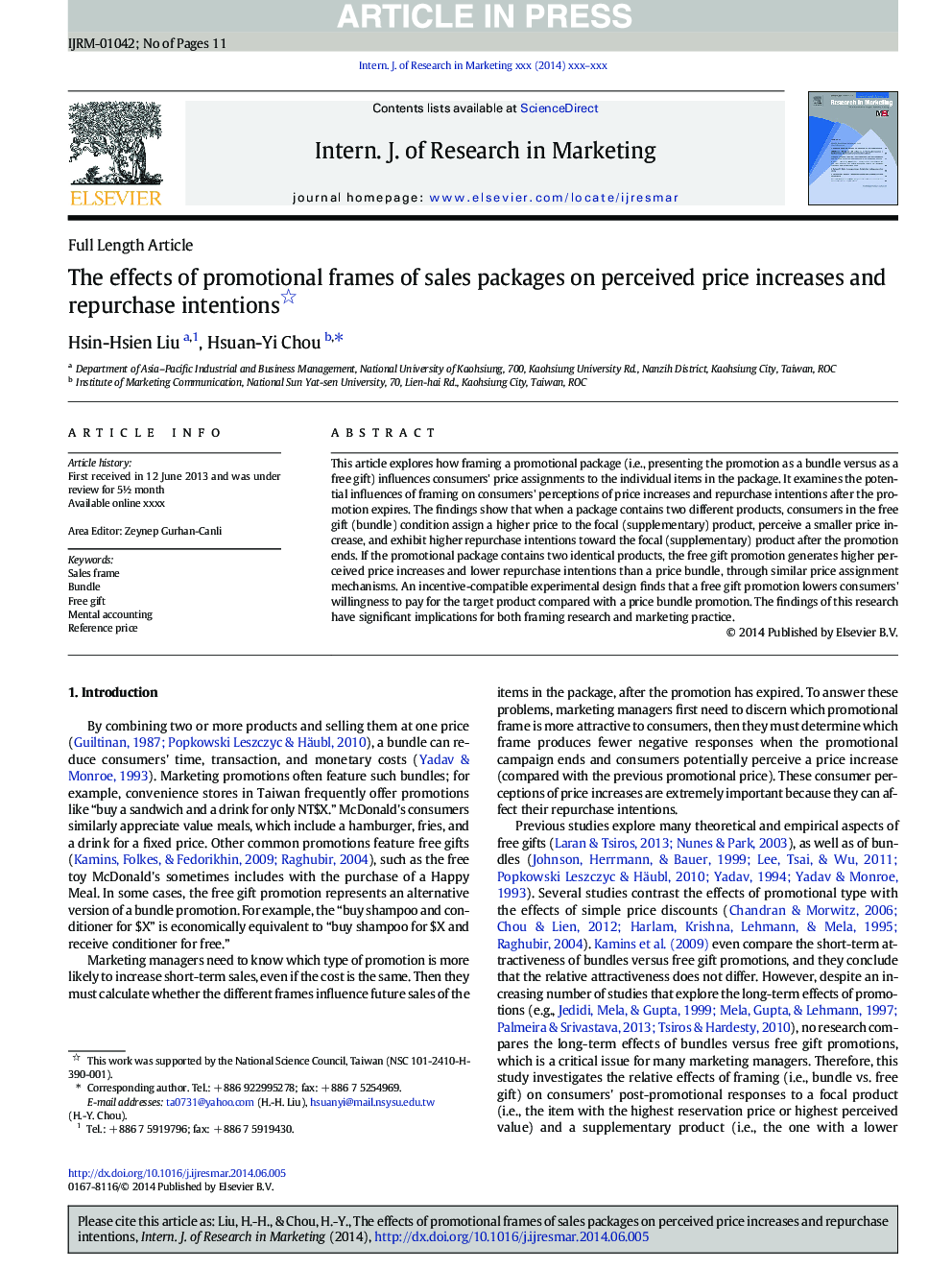| Article ID | Journal | Published Year | Pages | File Type |
|---|---|---|---|---|
| 7240570 | International Journal of Research in Marketing | 2015 | 11 Pages |
Abstract
This article explores how framing a promotional package (i.e., presenting the promotion as a bundle versus as a free gift) influences consumers' price assignments to the individual items in the package. It examines the potential influences of framing on consumers' perceptions of price increases and repurchase intentions after the promotion expires. The findings show that when a package contains two different products, consumers in the free gift (bundle) condition assign a higher price to the focal (supplementary) product, perceive a smaller price increase, and exhibit higher repurchase intentions toward the focal (supplementary) product after the promotion ends. If the promotional package contains two identical products, the free gift promotion generates higher perceived price increases and lower repurchase intentions than a price bundle, through similar price assignment mechanisms. An incentive-compatible experimental design finds that a free gift promotion lowers consumers' willingness to pay for the target product compared with a price bundle promotion. The findings of this research have significant implications for both framing research and marketing practice.
Related Topics
Social Sciences and Humanities
Business, Management and Accounting
Marketing
Authors
Hsin-Hsien Liu, Hsuan-Yi Chou,
